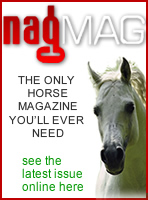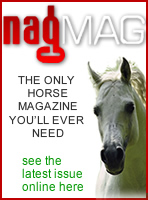
Horseytalk.net Special Interview
Amy Fordham
What’s changed since the horse meat scandal broke?
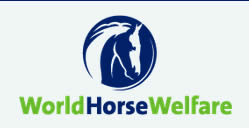 Says Amy Fordham, World Horse Welfare
Says Amy Fordham, World Horse Welfare
One year ago consumers were shocked to find out that what they thought was beef – was actually horse.
While many of the public were left feeling deceived and some guilty that they had been chomping down on horse meat – there was a silver lining to the dark cloud that had burst and landed on our dinner plates.
The horse meat scandal gave World Horse Welfare a chance to shine a spotlight on what was going on in the tangled and often sticky web of the horse meat trade, highlight how the laws in place meant to protect horses and the food chain don’t do the job and bring focus to the importance of improving accountability and traceability – all key factors that contributed to the landslide that was the horse meat scandal.
World Horse Welfare has been at the forefront of challenging existing laws and working with others in the horse sector and UK and EU governments on improved systems. Today the charity tells us what has changed since the scandal, but also what still needs to be done to ensure that the welfare of the horse is top of the list – and consumers are getting what they pay for.
• Improving the horse identification system in Britain:
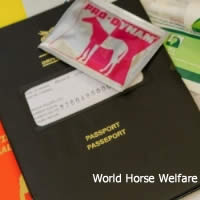 World Horse Welfare has long been aware of problems with the horse passport system – and had been raising these concerns with government for some years before the horse meat scandal. The scandal prompted the European Commission and Defra to launch a review of equine identification and World Horse Welfare as an active member of the equine sector council is now part of a group supporting Defra to overhaul the system in the UK and inform changes to EU law.
World Horse Welfare has long been aware of problems with the horse passport system – and had been raising these concerns with government for some years before the horse meat scandal. The scandal prompted the European Commission and Defra to launch a review of equine identification and World Horse Welfare as an active member of the equine sector council is now part of a group supporting Defra to overhaul the system in the UK and inform changes to EU law.
“Tightening up the laws on equine identification – or ‘horse passports’ – and planning to reintroduce a central database are vital steps forward, but there is a risk that the new laws will not go far enough to ensure a workable, enforceable system. We are urging the European Commission and Defra to take the opportunity afforded by the horse meat scandal to do it right this time around,” says World Horse Welfare chief executive Roly Owers.
The law requires that only horses born after 2009 have micro-chips linked to their passport, meaning that the hundreds of thousands of horses born before 2009 (who will potentially live on for decades) – will potentially remain untraceable, and the system remain open to abuse and difficult to enforce despite other measures to tighten the system. World Horse Welfare believes micro-chipping of all horses regardless of age is essential (these micro-chips to be issued in batches so they are traceable back to vet), however Defra and the European Commission may be reluctant to require this.
While Defra is rolling out more robust standards for equine identification next month, changes to the overarching EU Regulation are still being negotiated and are unlikely to be agreed until the end of the year, meaning no Europe-wide changes will take place until at least 2015.
“The momentum for change must be maintained. The effectiveness of the system will depend entirely on how well the new system and database are implemented, understood, complied with and enforced.”
See more on better laws for horses here
• Mandatory country of origin labelling for horse meat
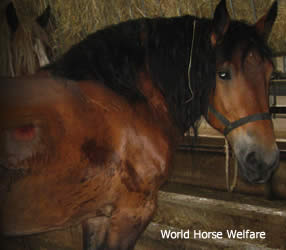 If beef - and soon sheep, pig and poultry - are labelled with their country of origin, why not horse meat? The EU are considering changing food labelling laws and World Horse Welfare believes all horse meat should be labelled with its countries of birth and if different, rearing and slaughter. Consumers across Europe are denied this simple information that is needed to make informed decisions about what they are eating.
If beef - and soon sheep, pig and poultry - are labelled with their country of origin, why not horse meat? The EU are considering changing food labelling laws and World Horse Welfare believes all horse meat should be labelled with its countries of birth and if different, rearing and slaughter. Consumers across Europe are denied this simple information that is needed to make informed decisions about what they are eating.
Currently horse meat may be legally labelled as the product of the country in which the animal was slaughtered. This means that meat from a horse transported for thousands of miles, spending only the final few hours of its life in the country where it is slaughtered, may appear to a consumer to be a local product. World Horse Welfare believes that this may be fuelling the trade in live horses transported needlessly long-distances across Europe for slaughter, and is calling for the public to tell the European Commission that clearer labelling is needed now.
See more about food labelling and write to Commissioner Borg here
• Long-distance journeys across Europe to slaughter
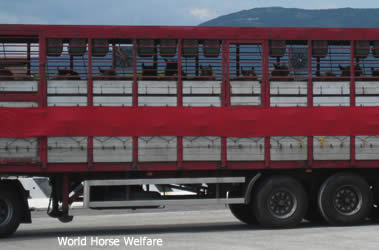 The horse meat scandal brought the murky trade of horse slaughter into the light of the public eye, and now across Europe there is greater awareness of the welfare problems caused by these long journeys.
The horse meat scandal brought the murky trade of horse slaughter into the light of the public eye, and now across Europe there is greater awareness of the welfare problems caused by these long journeys.
MEPS have shown their support for shortened journey limits for horses intended for slaughter and World Horse Welfare’s scientific evidence, including that cited by the Commission’s own scientific advisors, the European Food Safety Authority (EFSA), supports a journey limit for horses intended for slaughter of 12 hours. The charity is asking MEPs to get behind its calls for a journey limit that reflects this evidence and protects the welfare of horses.
In 2014, elections will be held to select Members of the European Parliament, and a new European Commission will also be chosen. The charity will have to work hard to present its campaign to a new audience so will need help to highlight the plight of these vulnerable horses and make sure that the new Commissioner understands the issue.
• The Horse Crisis
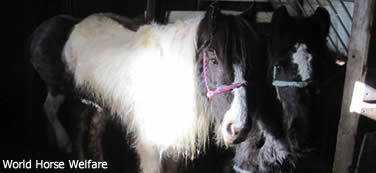 Based on a report by World Horse Welfare and other major welfare charities there are currently at least 6,500 horses at risk of abandonment or neglect across England and Wales due to an increase in breeding despite the decreasing value of horses – with some going for as little as £5 at markets.
Based on a report by World Horse Welfare and other major welfare charities there are currently at least 6,500 horses at risk of abandonment or neglect across England and Wales due to an increase in breeding despite the decreasing value of horses – with some going for as little as £5 at markets.
The dangerous and illegal practice of fly grazing, where horse owners graze their horses on land that they do not have permission to use, accounts for half of the number of horses at risk. This problem is in part a consequence of the unenforceability of the current equine identification system.
The Welsh Government have taken vital steps to implement legislation that deals with fly grazing but the English government are suggesting that the Localism Act may go some way to resolving the situation - charities await further details on how this might work in practice.
While charity centres are full to bursting with welfare cases there is nowhere for these horses to go and current legislation to address this issue is complex or often ineffective, often leaving the hands of Local Authorities tied.
What is clear is that this problem will not go away, is moving over the border and is likely to worsen unless government takes action to help.
See more about the horse crisis here where you can download the horse crisis report
• Mandatory CCTV inside slaughterhouses in Britain
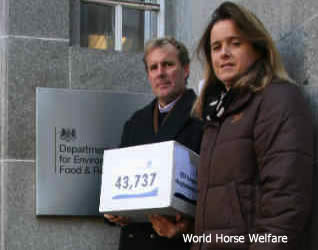 In light of revelations of flagrant horse abuse at an English abattoir earlier last year, World Horse Welfare handed in a petition to Defra complete with the backing of over 40,000 members of the British public calling for mandatory CCTV inside Britain’s equine slaughterhouses. Defra however, is reluctant to compel slaughterhouses to install the cameras saying that a voluntary system is preferred.
In light of revelations of flagrant horse abuse at an English abattoir earlier last year, World Horse Welfare handed in a petition to Defra complete with the backing of over 40,000 members of the British public calling for mandatory CCTV inside Britain’s equine slaughterhouses. Defra however, is reluctant to compel slaughterhouses to install the cameras saying that a voluntary system is preferred.
World Horse Welfare is disappointed at Defra’s response, and believes that had there been CCTV present inside the abattoir in question, the welfare abuses seen would not have occurred – or would have been identified at an earlier stage.
The abattoir in question was closed down temporarily for reasons unrelated to horse welfare. However, the charity is keen that CCTV be put in place as soon as possible to give horse owners confidence that humane slaughter is an option at the end of their horses’ lives, particularly as euthanasia and carcase disposal can be unaffordable for some owners.
You can see how CCTV will work to protect the animals inside Britain’s slaughterhouses – and the people involved here
• Restriction of the Tripartite Agreement
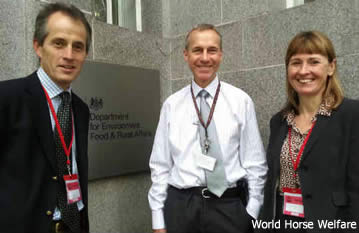 One huge achievement made possible by the horse meat scandal was the change to an agreement between the UK, Ireland and France to restrict the movement of horses without health checks or traceability. World Horse Welfare had long campaigned for the Tripartite Agreement to be restricted so that it applied only to horses of a high health status – which was its original purpose when established. However, its expansion in 2005 to cover all horses moving between the three countries (except for slaughter) posed serious disease risks and is believed to have facilitated the needless transport of thousands of vulnerable horses of a low market value, sometimes as cover for other illegal activity. At the end of last year the Chief Veterinary Officers in Ireland, France and the UK signed an agreement that will allow only horses of high health status (Thoroughbreds and FEI competition horses) to travel to and from the continent without health certification – and all these movements will now be traceable as well. Movements between the UK and Ireland will remain unchanged.
One huge achievement made possible by the horse meat scandal was the change to an agreement between the UK, Ireland and France to restrict the movement of horses without health checks or traceability. World Horse Welfare had long campaigned for the Tripartite Agreement to be restricted so that it applied only to horses of a high health status – which was its original purpose when established. However, its expansion in 2005 to cover all horses moving between the three countries (except for slaughter) posed serious disease risks and is believed to have facilitated the needless transport of thousands of vulnerable horses of a low market value, sometimes as cover for other illegal activity. At the end of last year the Chief Veterinary Officers in Ireland, France and the UK signed an agreement that will allow only horses of high health status (Thoroughbreds and FEI competition horses) to travel to and from the continent without health certification – and all these movements will now be traceable as well. Movements between the UK and Ireland will remain unchanged.
“This is excellent news for vulnerable horses and will help to safeguard the health of all horses in these countries so long as the revised agreement is effectively enforced,” said Roly Owers.
Read more about Tripartite Agreement and what this means for Britain’s horses here
What can you do to help?
You can email Commissioner Borg to tell him you want labels that tell the full story
Rehome instead of buy which will help to ease the crisis and suffering of the horse
About World Horse Welfare:
World Horse Welfare (Registered charity no: 206658 and SC038384), is an international horse charity that improves the lives of horses in the UK and worldwide through education, campaigning and hands-on care of horses. Since we were founded in 1927, our whole approach has been practical, based on scientific evidence and our extensive experience, and focused on delivering lasting change across the full spectrum of the horse world. In the UK our dedicated network of Field Officers investigate and resolve welfare problems, and we run four Rescue and Rehoming Centres where horses in need can receive specialist care, undergo rehabilitation and find loving new homes through our rehoming scheme – the largest of its kind in the UK.
Our international training programmes alleviate the suffering of thousands of working horses by providing essential knowledge for horse owning communities in the developing world. We also work tirelessly to change legislation and attitudes to horse welfare through campaigns and education, including our founding campaign to end the suffering endured by the tens of thousands of horses transported long-distance across Europe to slaughter each year.
We support the responsible use of horses in sport, and are an official welfare arm of the Fédération Equestre Internationale (FEI) and welfare advisors to the British Horseracing Authority.

